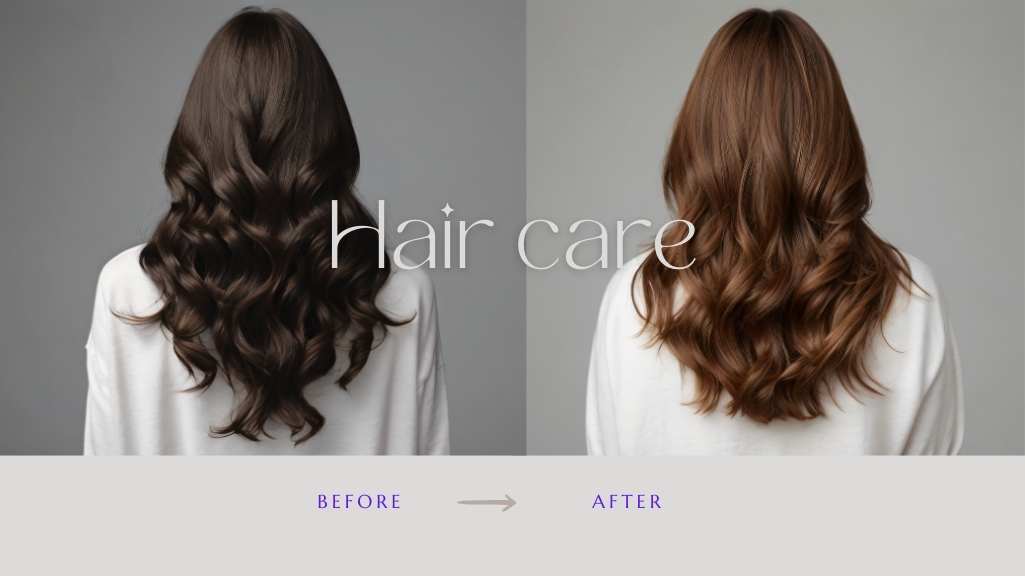Hair care extends beyond mere aesthetics into personal grooming and purity. This way, it makes your hair look beautiful and helps maintain overall health and well-being. The article is a detailed guide to hair care tips highlighting the importance, benefits, and possible disadvantages for both men and women that adults can use. As such, the advice given in this piece is practical, coming from research sources that readers can trust.
Table of Contents
The Significance of Hair Care Tips
Hair care is vital because it keeps hair healthy, prevents damage, and promotes its growth. You may have never thought about this before but healthy hair often reflects on our overall health since neglecting it can cause other head issues such as thinning hairlines, dandruff among others. Besides improving self-esteem and confidence among individuals through smart looks which are part of daily routine.
Hair Care Tips: Advantages
- Prevent Damage: Regular washing, conditioning, and protection from harsh conditions contribute towards avoiding problems like split ends as well as breakage.
- Promote Growth: Proper scalp health together with regular care can stimulate follicles leading to more hairs growing at one time as well as increasing their diameter.
- Enhance Look: Good-looking lively hair with a smooth texture tends to make one’s appearance polished.
- Boosts Self-esteem: Beautiful tresses raise one’s level of confidence making him/her feel comfortable in social or business situations.
Hair Care Tips: Possible Disadvantages
Nevertheless, some practices related to proper hair care may produce negative outcomes if done incorrectly:
- Over-Shampooing: Washing too often may deprive your strands of natural oils causing them dryness hence they break off easily.
- Excessive Heat Styling Is Harmful: Repeated use of hot tools without protection causes damages thereby weakening them further.
- Use Of Harsh Products May Cause Allergies and Damaged Hair Over Time: This can result from the fact that some hair care products contain alcohol, sulfates, and parabens.
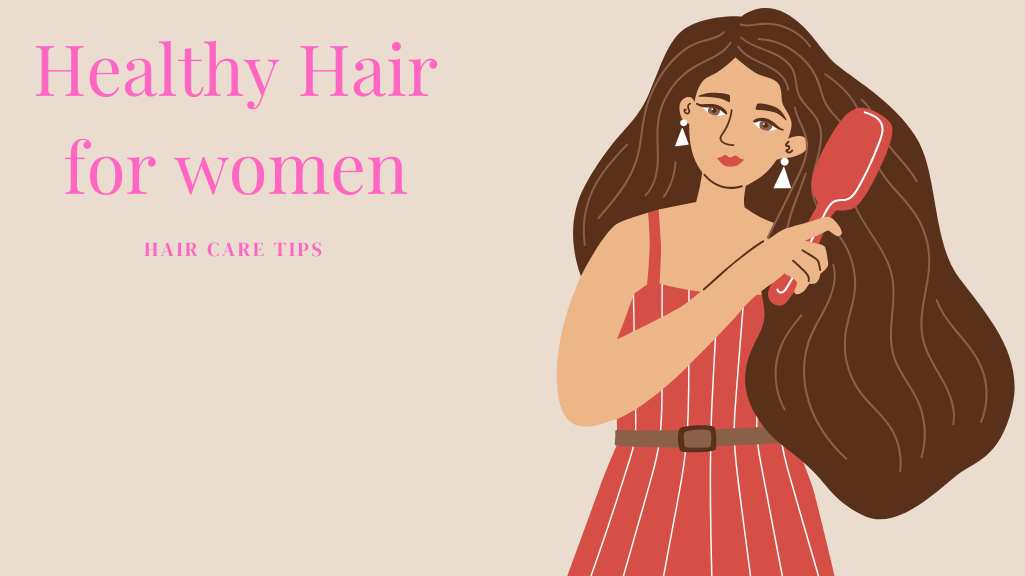
Hair Care Tips for Men and Women
When drawing up a plan for hair care strategies, there are several factors to consider such as gender, hair type, and lifestyle among others. Below are comprehensive tips for maintaining healthy hair for both males and females.
1. Your Hair Type
Knowing your type of hair is essential before coming up with an efficient regimen. There are different types of hairs including wavy or straight, coily or curly.
- Straight Hair: Tends to become greasy very quickly hence requiring frequent shampooing
- Wavy Hair: Needs lightweight products that will not weigh it down but enhance its natural waves
- Curly Hair: Require extra moisture and gentle handling to avoid frizz and maintain curl definition.
- Coily Hair: Calls for sufficient moisture while keeping breakage at a minimum by avoiding excessive manipulation of strands.
2. Washing and Conditioning
- Cleansing Hair: Choose a shampoo that doesn’t have sulfates yet suits your hairstyle best. For you to maintain oily scalp condition just cleanse your locks two to three times within seven days whereas washing once every seven days might cause dirt to build up on one’s head due to insufficient moisture level.
- Conditioning: After every time you have used your shampoo conditioner is supposed to be applied to make them smoother. Concentrate on lower parts where the locks are often dry. Once in seven days, deep conditioning would be necessary as well.
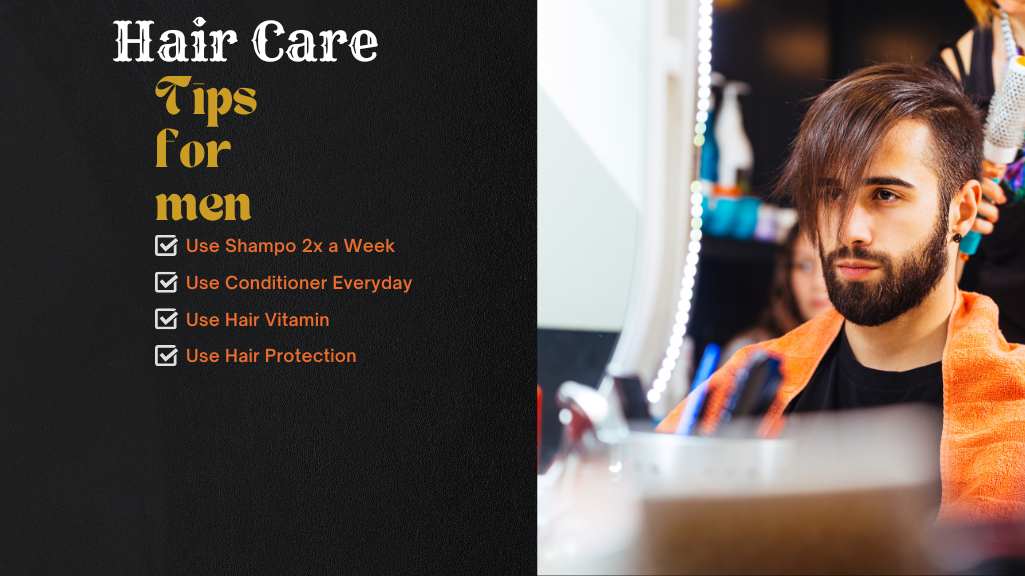
Scalp treatment is needed.
A good scalp is essential for healthy hair. To stimulate hair growth and help with blood flow on the head, you should frequently massage your scalp. Rinse the scalp with mild organic products that are free from strong chemicals that can irritate it.
- Scalp treatments: To treat dandruff or flaky scalps, try using tea tree oil or salicylic acid. A gentle scrub used for regular exfoliation will remove build-up as well as dead skin cells.
4. Protection Against Heat
To avert hair damage, apply heat styling devices such as hairdryers, sloshing, and curling irons with caution. Our hair should forever be sprayed with a heat protectant before applying heat. Excessive destruction can be minimized by restricting the use of hot tools.
- Air Dry: Let your hair air dry anytime possible. Use a dryer only at low temperatures when necessary.
- Styling Without Heat: You can try out non-heated alternatives of styling as plaiting or building buns or twists to keep your hair from being damaged.
5. Trimming and Haircuts
Getting regular trims is important for overall hair health and preventing split ends. To avoid unhealthy growth, aim to cut off damaged parts every 6-8 weeks.
- Haircuts for Hair Kind: Select a haircut that fits your kind of hair, and culture-like layers will make fine hair look successful while blunt cuts are great for those with thick strands.
6. Nutrition and Hydration
The health of your hair is instantly linked to your diet. Eat a well-balanced diet that includes enough vitamins and minerals which help strong, shiny curls.
- Key Nutrients: Foods rich in biotin, vitamin E iron, and omega-3 fatty acids boost healthful hair growth.
- Hydration: Ensure you drink plenty of water to hydrate your hair from the inside out or else it becomes dry, brittle, and prone to breakage.
7. Avoiding Harmful Practices
Some habits can lead to permanent damage to the hair over time, thus, should be avoided:
- Tight Hairstyles: Consistently wearing tight hairstyles like braids or ponytails can result in traction alopecia leading to the loss of some hairs on the head like the one shown here.
- Over-Brushing: Brushing too frequently also causes breakages especially when it occurs while wetness still exists in strands hence it is better to use a comb having big gaps between its teeth as it helps in gently un-knotting hairs from dampness.
- Chemical Treatments: There are very few things that women do as much as dyeing their locks into different colors so we just hope that everyone understands that when we talk about limiting chemical treatments, we imply the act of coloring, perming, or relaxing. Whenever using these treatments, you should know that professionals are better off assisting you to apply them and then use some natural oils or conditioners.
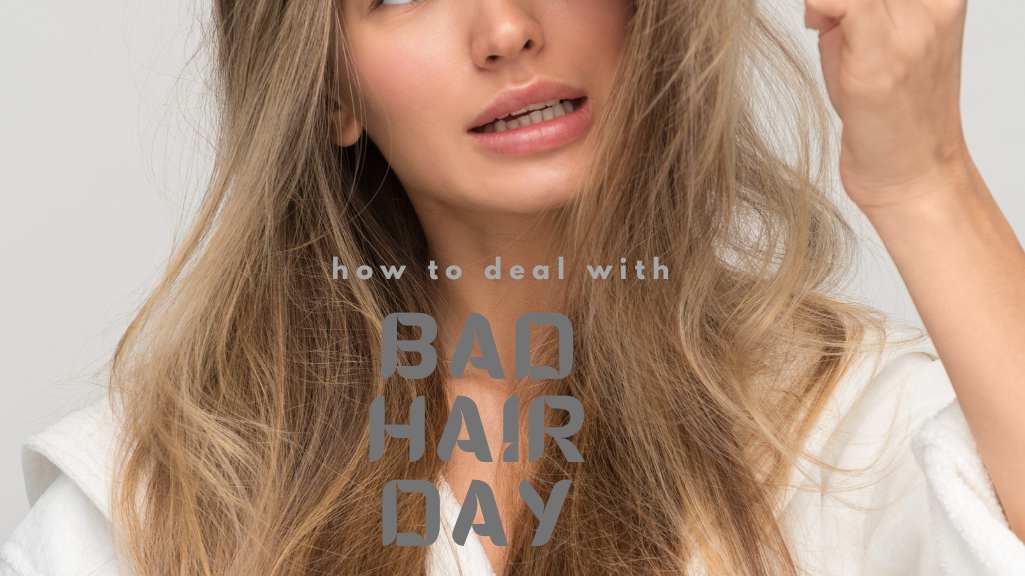
Hair Care Tips for Specific Audiences
For Adults:
Adult hair care should center on maintaining moisture and defending against harmful effects of environmental factors like dirt and the sun. Consider using hair care products that have SPF in them or other anti-aging solutions to keep the hair looking young.
For Teens:
The teenage group is characterized by oily scalp issues and hormonal changes that can impact their hair health. For healthy manageable hair, encourage balanced dieting and a simple effective routine for its cleansing.
For Seniors:
With age, comes thinner hair that dries out more easily. This means that elderly people with hair need moisturizing gentle products that also make it strong as well as hydrated. Regular trims and minimal heat styling can help maintain healthy hair as it ages.
Practical Tips for Healthy Hair
- A cold-water rinse: After you shape your hair, you can rinse it with cold water so that the cuticles on your strands get sealed, thus making them plain and shinier.
- Silk Linen: Sleep on silk pillow situation because they reduce friction hence preventing breakage. Additionally, silk helps retain humidity in our hair.
- Protective Styles: For curly or coily-haired people, protective styles are good like braids or twists since these styles will minimize breakage while the length is retained.
- Limit Chemical Exposure: Earlier swimming limits exposure to chlorine in pools by wearing swim, caps or using leave-in conditioners to protect against this chemical.
- Regular Scalp Massages: Constantly massage your scalp with rosemary or peppermint vital oils which promote the increase of hairs.
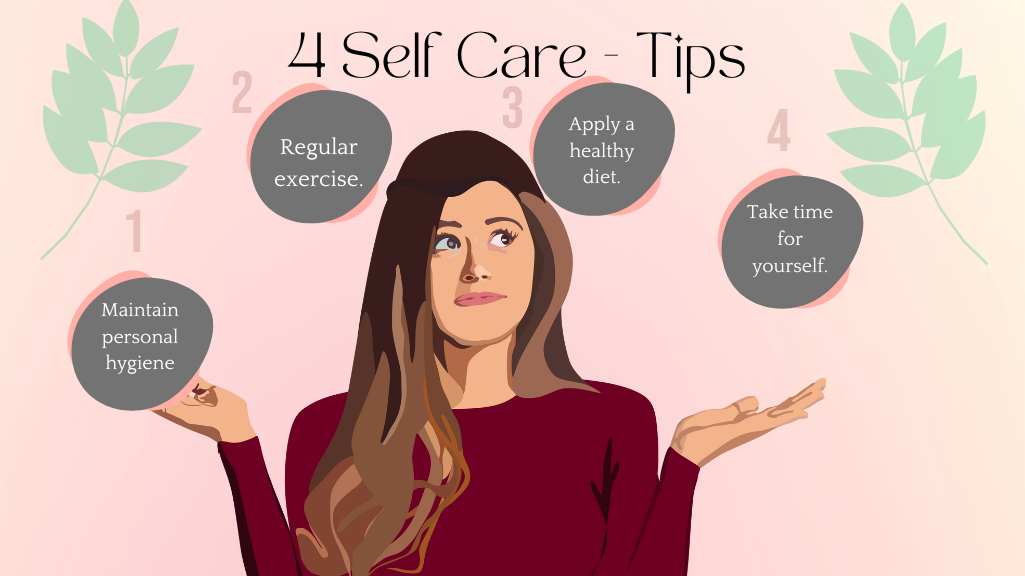
Conclusion: Hair Care Tips
Hair care Tips is not universal; instead, it calls for understanding the personal type of hair, way of life, and specific needs. By reading through this article’s tips, you will have beautiful healthy-looking locks. Irrespective of whether one is male, female, young, or old any person can use these tips above to create an effective routine towards achieving a strong head of the real human being appearance-enhancing locks – sweet self-esteem. Just be consistent and your hair care journey will count on the right products, methods, and practices you follow.
FREQUENTLY ASKED QUESTIONS
1. How often should I wash my hair to make it healthy?
How many times you must wash your hair will depend on what type of hair you have and the way you live your life. Most people find washing their hair 2-3 times a week is the best frequency for them. Over washing removes natural oils from your hair and causes dryness while under washing leads to build-up. For example, if you have oily tresses, you may need to wash them more often but those of us with dry or curly locks should try not doing that.
2. How can I prevent damage caused by heat styling?
When using heat styling tools, apply a heat protectant spray first on your strands to prevent any possible damage. Use them sparingly and at their lowest settings where possible. Alternatively, when this is an option consider air drying your curls, otherwise, there are styles such as plaits or buns that do not require any heating at all.
3. Can eating affect the healthiness of my hair?
Indeed, in this case, diet plays a role: A balanced diet filled with vitamins like biotin, Vitamin E, iron and Omega 3 fatty acids will promote healthier and stronger strands of hair too. Also, for one’s body drinking enough water becomes important because through this process it prevents dehydration thus eliminating instances of brittle and dry hairs.
4. How can breakage due to tight hairstyles be prevented?
Instead of always having hairstyles like ponytails, braids, or buns that pull tight onto one’s head, go for looser alternatives changing them frequently so as not to overstrain oneself by always doing similar styles every day leading traction alopecia; excessive pulling which results in loss of hairs.
5. Can dandruff and flaky scalp be treated naturally?
Yes, there are various natural remedies for treating dandruff and flaky scalp. This is done by diluting tea tree oil in a carrier oil, for example, which will help relieve dandruff when applied to the scalp. On the other hand, to reduce flakiness and add moisture, one can massage the scalp regularly with coconut oil. Additionally, there are mild shampoos containing salicylic acid which will exfoliate the scalp and remove dead cells.

